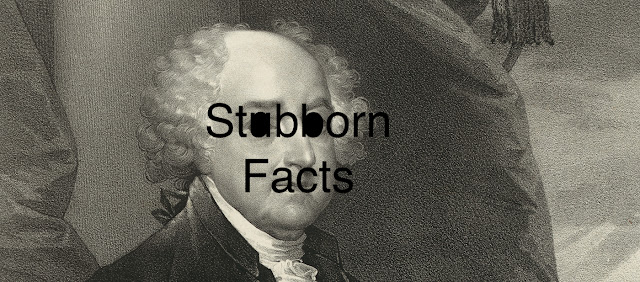Pre-Departure Thoughts
 |
| This was literally on the news one day. |
The fundamental challenge of any democratic society that must deal with higher levels of multicultural interaction is how to find the basic “platform” of agreement. World-views principally rely on core epistemic beliefs - that is, many specific beliefs about the world or society rely or are founded on core foundations (set individually, religiously or by the community, real or virtual). Whether not “knowledge” per se is foundational or not is a controversial epistemological question; however, to worry about what Lynch (2015) calls epistemic principles is still a serious educational problem. According to Lynch, “epistemic principles gives us our standards of rationality” (p. 57). In other words, in order to resolve differences of opinions (even about scientific evidence), there must be a decision about values (who someone or a community values as how to decide what paradigm to use in order to see the world). If those fundamental epistemic principles are not prima facie compatible, how do you resolve this in a multicultural society? Moreover, using traditional, segregated units of study may not work - as Lynch skeptically notes:
"This darker thought is that changing people’s minds—or changing our own minds—if the change concerns a very fundamental principle, can never be a rational process. Manipulation, conversion, power is all there really is. There is no such thing as rational persuasion when it comes to first principles." (Lynch 2016).
 |
| Statue "grave yard" in Budapest - dialogue in the U.S.? |
If, as the argument goes, a country or society maintains a cohesive and peaceful democratic
society, it is because of a process in which to resolve epistemic and other disagreements. It will
by definition be easier to resolve those issues if the society is more homogeneous. In Europe,
crisis of cross-cultural issues (migration, immigration and trade) seem to emerge when terrorism
and economic harm are linked with cultural penetration of geopolitical space or even epistemic
space (See Lynch and Haidt). Teaching students to learn how to engage with opposing cultures
and beliefs seems even more critical than ever.
In the United States, democratic institutions have been learning to deal with multicultural education in many of the inner-city and urban areas - due to race, religious diversity and ethic cross-integration in especially public schools. Many educational best practices as well as my pedagogical practices have attempted to use student-centered and dialogue based lesson planning in order to “teach democracy.” More specifically, debate and dialogic forums are tools that I try to use in order to encourage students to communicate differing ideas about key epistemic problems as well as step away from rooted “epistemic principles” (or the lack thereof) and criticize and/or appreciate their own. According to my experience, debate enables students to become autonomous democratic vehicles and advocates - but advocates that learn that problems are resolved in a space of reasons and building differences and similarities in values. Kohlberg (cited by Parker, 2003: Power, Higgins, & Kohlberg, 1989) encouraged what he researched as the necessary context to “best support toward post conventional principled reasoning [about justice, fairness and democracy] , would be frequent and extended involvement in discussion of genuine value conflicts”(p. 63).
In the United States, democratic institutions have been learning to deal with multicultural education in many of the inner-city and urban areas - due to race, religious diversity and ethic cross-integration in especially public schools. Many educational best practices as well as my pedagogical practices have attempted to use student-centered and dialogue based lesson planning in order to “teach democracy.” More specifically, debate and dialogic forums are tools that I try to use in order to encourage students to communicate differing ideas about key epistemic problems as well as step away from rooted “epistemic principles” (or the lack thereof) and criticize and/or appreciate their own. According to my experience, debate enables students to become autonomous democratic vehicles and advocates - but advocates that learn that problems are resolved in a space of reasons and building differences and similarities in values. Kohlberg (cited by Parker, 2003: Power, Higgins, & Kohlberg, 1989) encouraged what he researched as the necessary context to “best support toward post conventional principled reasoning [about justice, fairness and democracy] , would be frequent and extended involvement in discussion of genuine value conflicts”(p. 63).
Finally, educational, social, and political problems in the United States that I feel as a duty to
address: building respect for cultural diversity while resolving the polarization within U.S.
politics and society; many discussions of the 2016 presidential election cite social media, smart
phones, internet, “google-knowing” and the rise of misinformation systems as the cause of the
election of Trump and other Nationalists or populist tendencies. More simply, access to smart
phones and instant internet access in the classroom is fundamental changing the way teachers
and ‘connect’ with their students (good and bad).
__________
__________
Hess, D. (2005). Wise practice in an innovative public school. In E. A. Yeager & O.L. Davis (Eds.), Wise social teaching in a age of high-stakes testing (pp. 131-151). Charlotte, NC:IAP
Johnston, P. H. (2004). Choice words: How our language affects children’s leaning. Portland, Maine: Steinhouse.
Lynch, Michael (2016). The Internet of Us: Knowing More and Understanding Less in the Age of Big Data. New York: Liverlight Publishing.
Lynch, Michael (2016) After the Spade Turns: Disagreement, First Principles and Epistemic Constractariansim. International Journal for the Study of Skepticism 6 (2016) 248-259.
Kymlicka, Will (2002) Contemporary Political Philosophy: An Introduction. Oxford: Oxford University Press.
Parker, W.C. (2003). Teaching democracy: Unity and diversity in public life. New York: Teachers College Press.
Savage, T.V., Savage M.K., Armstrong D.G. (2006) Teaching in the secondary school. (6th ed.). Upper Saddle River, NJ: Pearson.
Shulman, L.S. (2004). Those who understand: Knowledge growth in teaching. In L.S. Schulman. The wisdom of practice: Essays on teaching, learning, and learning to teach. (pp. 187-215). San Francisco: Jossey-Bass.


Your post calls to mind Kant's argument about the mutually constitutive condition of practical reason and individual freedom. In the age of identity politics --nationalism being the most overt form of identity, but no doubt assembling and cloaking the uglier forms of identification--what hope is there that reason can inform political discourse? Does it come down to education and developing a norm? Seems like Mitch McConnell's leadership reveals just how fragile our reasonable institutions are.
ReplyDelete